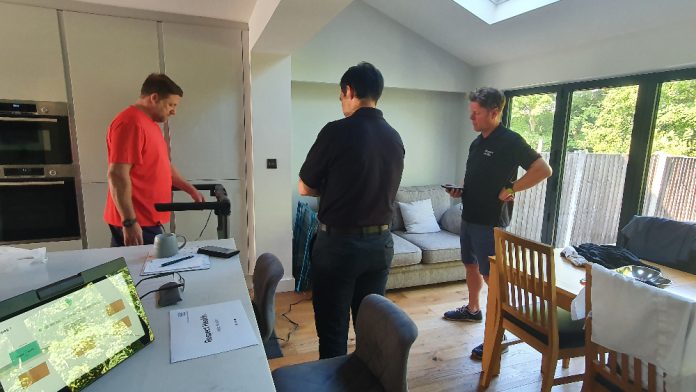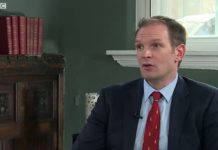A new Salford project that brings exercise equipment into people’s homes is transforming lives and getting people back on their feet.
Respect Health is trialling a new way of delivering an exercise therapy course for people with peripheral arterial disease (PAD). This is a serious condition that leads to chronic pain, gangrene, amputation (95% of amputations in the UK are caused by PAD) and death. People with PAD are at much higher risk of stroke or heart attack. Lifestyle factors such as smoking and inactivity play a huge part in its progression, so addressing these issues early is vital.
National Institute of Health and Care Excellence (NICE) recommends supervised exercise therapy as the first line of treatment. However, research form Adam Haque, Founder at Respect Health, demonstrated that not even 7% of UK Trusts were offering compliant services.
Where hospitals were offering exercise therapy courses, take-up was low – people couldn’t attend the 12 weekly sessions due to lack of transport, work or family commitments.
That’s why Respect Health’s idea was to bring exercise therapy into people’s homes, giving them all the exercise equipment they needed to do the course, at a time to suit them. They gave each participant an easy-to-use mobile device with a large screen, designed for people who aren’t familiar with technology, as well as arranging internet access for those that didn’t already have it.
Participants use the device to watch a series of exercise sessions and copy the instructor. They’re asked to do a 30-minute session, five days a week, for 12 weeks. There is also a video-based stop smoking course, motivational counselling and general health and wellbeing tips. There are educational videos that explain why exercise works and why it’s so important. This gives people the motivation to keep on track and helps with wider health and wellbeing issues that may have contributed to their condition, such as addiction, self-worth and mental health. In the background, Respect Health’s coaches monitor each person’s progress and where they are struggling, provide individual advice and support to make sure they stay on track.
At the end of the 12 weeks, the person is put in touch with community support to help them maintain the positive changes.
Colin, 61, has recently completed the course, he said, “It’s a perfect programme and you do it from your own environment whenever you want. The team came to help set up in my living room and I was able to use the tablet straightaway and do the exercises. It’s only half an hour a day and it really works! This became such a great routine that after I finished my 12-week programme I got myself an exercise bike to continue working out, as I know the exercises now. It totally changes your outlook both mentally and physically. It’s like having both sides of the coin. I highly recommend it because you got nothing to lose (just a few stones) and everything to gain!”
Another participant, Carolyn, 61, said “It’s great that you can fit the programme in around work, I don’t have to take any time off and can just do the exercise session when I get home. Although I’m a nurse, I still didn’t find the time to attend in-hospital exercise sessions. This in-home programme really helped me; I can walk further now, and my leg has stopped swelling. I feel so much better.”
Stephen, 54, was the first person to finish the course, he had just had a stent fitted and was in a lot of pain when he first started the course.
Stephen said “I felt really motivated – at each session we were told how that exercise would help, so you understand what you’re doing it for. We’d get a new message every time there was a new session to complete and messages to say well done when you finished it. I’ve done a similar course at a hospital and this was so much easier, I just did the exercises first thing every morning. I feel fitter now, I can walk longer and my leg isn’t hurting anymore.”
Adam Haque, a Vascular Surgery Registrar and Clinical Lecturer in Manchester who set up the programme said “It’s great to see how the project is improving people’s quality of life, giving them back their independence and helping them with their condition without having surgery. So far almost everyone who started the course has completed the full programme, which doesn’t usually happen when sessions take place at a hospital. We’re looking forward to welcoming the next cohort of people shortly.”
The project has been funded for 12 months through Salford Integrated Care Partnership’s Innovation and Improvement Fund, a scheme that’s available to organisations in Salford to test new ideas and innovative ways of working across primary care, the community and voluntary sector and with health and care providers. Since the fund was launched in 2013, over £9m has been invested in local innovation schemes to improve people’s lives.
-ENDS-







